第1章
Editor of "Poetry"Introduction.By Harriet MonroeWhen `Poetry, A Magazine of Verse', was first published in Chicago in the autumn of 1912, an Illinois poet, Vachel Lindsay, was, quite appropriately, one of its first discoveries.
It may be not quite without significance that the issue of January, 1913, which led off with `General William Booth Enters into Heaven', immediately followed the number in which the great poet of Bengal, Rabindra Nath Tagore, was first presented to the American public, and that these two antipodal poets soon appeared in person among the earliest visitors to the editor.For the coming together of East and West may prove to be the great event of the approaching era, and if the poetry of the now famous Bengali laureate garners the richest wisdom and highest spirituality of his ancient race, so one may venture to believe that the young Illinois troubadour brings from Lincoln's city an authentic strain of the lyric message of this newer world.
It is hardly necessary, perhaps, to mention Mr.Lindsay's loyalty to the people of his place and hour, or the training in sympathy with their aims and ideals which he has achieved through vagabondish wanderings in the Middle West.And we may permit time to decide how far he expresses their emotion.But it may be opportune to emphasize his plea for poetry as a song art, an art appealing to the ear rather than the eye.The first section of this volume is especially an effort to restore poetry to its proper place -- the audience-chamber, and take it out of the library, the closet.In the library it has become, so far as the people are concerned, almost a lost art, and perhaps it can be restored to the people only through a renewal of its appeal to the ear.
I am tempted to quote from Mr.Lindsay's explanatory note which accompanied three of these poems when they were first printed in `Poetry'.He said:
"Mr.Yeats asked me recently in Chicago, `What are we going to do to restore the primitive singing of poetry?' I find what Mr.Yeats means by `the primitive singing of poetry' in Professor Edward Bliss Reed's new volume on `The English Lyric'.He says in his chapter on the definition of the lyric: `With the Greeks "song" was an all-embracing term.
It included the crooning of the nurse to the child...
the half-sung chant of the mower or sailor...the formal ode sung by the poet.In all Greek lyrics, even in the choral odes, music was the handmaid of verse....The poet himself composed the accompaniment.Euripides was censured because Iophon had assisted him in the musical setting of some of his dramas.'
Here is pictured a type of Greek work which survives in American vaudeville, where every line may be two-thirds spoken and one-third sung, the entire rendering, musical and elocutionary, depending upon the improvising power and sure instinct of the performer.
"I respectfully submit these poems as experiments in which I endeavor to carry this vaudeville form back towards the old Greek precedent of the half-chanted lyric.In this case the one-third of music must be added by the instinct of the reader.He must be Iophon.
And he can easily be Iophon if he brings to bear upon the piece what might be called the Higher Vaudeville imagination....
"Big general contrasts between the main sections should be the rule of the first attempts at improvising.It is the hope of the writer that after two or three readings each line will suggest its own separate touch of melody to the reader who has become accustomed to the cadences.Let him read what he likes read, and sing what he likes sung."It was during this same visit in Chicago, at `Poetry's' banquet on the evening of March first, 1914, that Mr.Yeats honored Mr.Lindsay by addressing his after-dinner talk primarily to him as "a fellow craftsman", and by saying of `General Booth':
"This poem is stripped bare of ornament; it has an earnest simplicity, a strange beauty, and you know Bacon said, `There is no excellent beauty without strangeness.'"This recognition from the distinguished Irish poet tempts me to hint at the cosmopolitan aspects of such racily local art as Mr.Lindsay's.
The subject is too large for a merely introductory word, but the reader may be invited to reflect upon it.If Mr.Lindsay's poetry should cross the ocean, it would not be the first time that our most indigenous art has reacted upon the art of older nations.
Besides Poe -- who, though indigenous in ways too subtle for brief analysis, yet passed all frontiers in his swift, sad flight -- the two American artists of widest influence, Whitman and Whistler, have been intensely American in temperament and in the special spiritual quality of their art.
If Whistler was the first great artist to accept the modern message in Oriental art, if Whitman was the first great modern poet to discard the limitations of conventional form: if both were more free, more individual, than their contemporaries, this was the expression of their Americanism, which may perhaps be defined as a spiritual independence and love of adventure inherited from the pioneers.
Foreign artists are usually the first to recognize this new tang;one detects the influence of the great dead poet and dead painter in all modern art which looks forward instead of back;and their countrymen, our own contemporary poets and painters, often express indirectly, through French influences, a reaction which they are reluctant to confess directly.
A lighter phase of this foreign enthusiasm for the American tang is confessed by Signor Marinetti, the Italian "futurist", when in his article on `Futurism and the Theatre', in `The Mask', he urges the revolutionary value of "American eccentrics", citing the fundamental primitive quality in their vaudeville art.